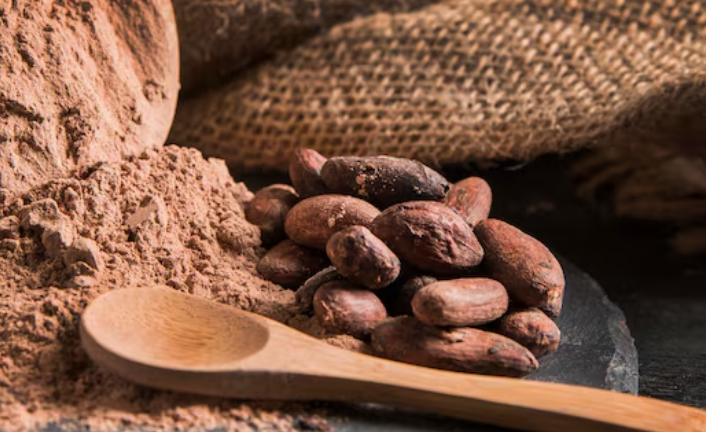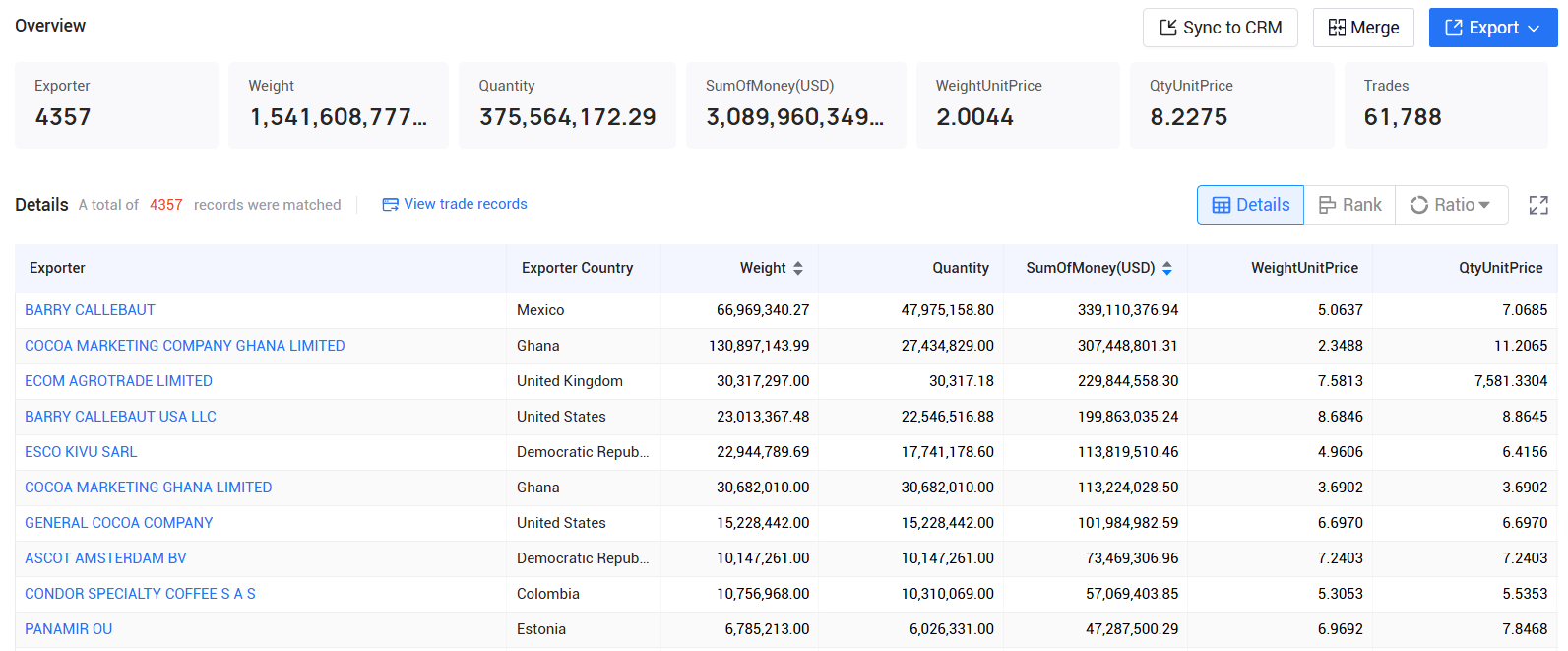 Export News
Export News
 2025-08-15
2025-08-15
Cocoa bean export, as a tropical crop with both economic value and cultural significance, is an indispensable core raw material in the global food industry. From chocolate desserts on street corners to natural ingredients in high-end cosmetics, its presence spans multiple fields, and the resulting cocoa bean export trade occupies a crucial position in the global agricultural product circulation.

1. Market Overview
Market size: The cocoa bean export market is expected to reach $17.24 billion in 2024 and $23.97 billion in 2029, with a compound annual growth rate of 6.81% from 2024 to 2029
Application industries: food and beverage, candy, cosmetics, functional foods, etc., also used in chocolate production
Market trend: Cocoa beans are widely used in various industries such as food and beverage. Germany, Belgium, Italy, and Poland are the four major chocolate producing countries, accounting for over 40% of global chocolate exports; Chocolate is the largest end user of cocoa beans, and the increase in chocolate sales drives demand for cocoa bean related products.
According to Tendata Global Trade Data, the following countries are the top 10 Countries of cocoa bean export in 2024:
1. Ivory Coast: $3.87102 billion (36.02% of global cocoa bean exports)
2. Ecuador: 2.02099 billion US dollars (18.80%)
3. Cameroon: 152858 million US dollars (14.22%)
4. Peru: 993.85 million US dollars (9.25%)
5. Ghana: 825.07 million US dollars (7.68%)
6. Colombia: 569.88 million US dollars (5.30%)
7. Uganda: 451.58 million US dollars (4.20%)
8. Mexico: $354.71 million (3.30%)
9. Tanzania: $710.6 million (0.66%)
10. Philippines: $184.2 million (0.17%)
These 10 countries together supply 99.60% of global cocoa bean exports in 2024. From a regional distribution perspective, African countries constitute the "main force" of global cocoa bean exports. Ivory Coast, Cameroon, and fifth ranked Ghana ($825 million, 7.68%) together account for 57.92% of the global cocoa supply chain. With suitable natural conditions and a long history of cultivation, the African continent has become the core region of the global cocoa supply chain.
According to Tendata Global Trade Data, the following companies are the largest participants in global cocoa bean export in 2024:
COCOA Marketing Company GHANA LIMITED: $825.25 million (accounting for 24.19% of related cocoa bean exports)
Barry CALLEBAUT ECUADOR S A: $379.79 million (11.13%)
STE INDUS CAM DES CACAOS: $311.4 million (9.12%)
CARGILL WEST AFRICA: $295.14 million (8.65%)
MACHU PICCHU FOODS S A C: $293.53 million (8.61%)
SOCIETE DE COMMERCIALISATION DE CAF: $289.16 million (8.48%)
AGROINDUSTRIAS ARRIBA DEL ECUADOR AGROARRIBA S A: 280.75 million US dollars (8.23%)
OLAM UGANDA LIMITED: 256.663 million US dollars (7.52%)
OLAM FOOD INGREDIENT CAMEROON: $243.05 million (7.13%)
AGROINDUSTRIAS UNIDAS DE CACAO: 236.78 million US dollars (6.94%)
From the perspective of enterprise types, multinational agricultural giants have performed outstandingly in the cocoa bean export market. Cargill West Africa (USD 295 million, 8.65%) and OLAM UGANDA LIMITED, a Uganda and Cameroon company under the Oran Group (USD 257 million, 7.52%); OLAM FOOD INGREDIENT CAMEROON, Multinational corporations such as 243 million US dollars (7.13%) have taken a dominant position in cocoa bean procurement, processing, and trade, particularly in the African and South American markets, thanks to their financial, technological, and global layout advantages.
>>Get a Free Demo from Tendata<<
For companies interested in expanding their cocoa bean export business, Tendata Global Trade Data Platform not only helps you understand the global market landscape, but also directly exporter lists, improves customer profiles, and achieves rapid implementation.
One significant advantage of Tendata is that it provides a comprehensive database of contacts, allowing you to access decision-makers' detailed information—procurement executives, senior executives, emails, and even LinkedIn and Facebook profiles—with just one click. This greatly improves work efficiency and enables plastic sheeting export businesses to communicate and collaborate more effectively with target customers, ultimately increasing the success rate of cocoa bean export deals.

Category
Leave Message for Demo Request or Questions


 T-info
T-info T-discovery
T-discovery

 My
Tendata
My
Tendata Market Analysis
Market Analysis Customer
Development
Customer
Development Competitor
Monitoring
Competitor
Monitoring Customer Relationship
Customer Relationship





































































































































